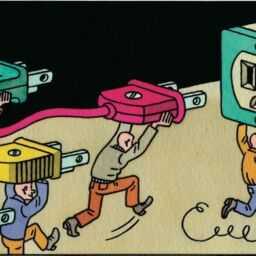
During the ‘cold war’, a term used to describe the tension between communist and capitalist countries, which lasted from 1947 to 1991, one of the fears was a military conflict between Russia or China and the U.S. It didn’t happen. The potential of a military war instead morphed into an economic war. The U.S. was winning hands down for a long time – but not so much anymore.
It used to be that the U.S. was #1 in pretty much everything; education, technology, standard of living, economic and military strength, admired world leadership. It was leading the rest of the world into the future with the demonstrative power of democracy and free markets, new technological breakthroughs in automation, computers, communications, energy, medicine, space travel, to name a few. In recent years, a number of countries have surpassed the U.S. in specific areas, including consumer incomes, standard of living, and healthcare. But the economic powerhouse has been China. Some of the statistics, and the speed with which they have changed, have been startling.
Over the last ten years China’s economy has surged past those of Canada, Spain, Brazil, Italy, France, and Germany, and is expected to pass Japan this year, to become the 2nd largest economy in the world, behind the U.S. Whether it’s manufacturing efficiency, high-speed rail-line technology, nuclear power plant construction, clean air energy technology, education, China is making impressive global inroads, even in areas where the U.S. still has significant dominance. Much of it has to do with China’s massive population, about which the U.S. can do nothing. For instance, while U.S. Internet companies dominate global headlines, China now has the world’s largest internet market as measured by the number of users. Yet internet use has only penetrated 22% of the population versus 75% in the U.S.
Meanwhile, U.S. Internet giants like Google, Yahoo, eBay, Amazon, Facebook and Expedia are experiencing problems trying to transport their dominance into the Chinese market. Part of it is obstacles placed in their way by China’s government, in support of China’s state-controlled corporations. The result is Chinese internet companies like Tencent, and Baidu, cannot help but become world leaders. Here’s a statistic of more importance. U.S. universities will graduate 150,000 engineering students this year, while Chinese universities will graduate more than 500,000. I’ve had people tell me that’s an unfair comparison since China’s population is larger by approximately the same ratio. But that’s not the issue. The issue is the degree to which China has moved higher education to the top of its priorities, and the fact that 500,000 new engineers a year will probably come up with more high-tech innovations than 150,000 can.
China’s great leap forward has been going through the same phases the early U.S. experienced as it worked toward becoming the world’s dominant economy. When we criticize China for the treatment of its underpaid and overworked labor force we sometimes forget that in the early years the U.S. also exploited its workers, even utilizing child labor in 14 hour days in garment, textile, and shoe factories, coal mines and crop fields, which gave the country its initial low-cost jump start economically. It appears China is beginning to exit that phase and enter the next, of treating its workers better. In the past year Chinese workers have been allowed to form unions and strike for higher wages and shorter hours at various auto and electronics plants. The west would probably like to think that is due to the pressure put on China to improve human rights.
However, China has never shown any inclination to bow to pressure in any area. The fact is that the next phase of China’s economic development must be, as it was in the U.S., to develop a strong domestic economy. To do so it needs to have a more prosperous population of consumers, rather than depending on low cost exports to other countries. Meanwhile, it can be said that China is eating America’s lunch, never taking its eyes off the goal, while we squabble among ourselves, paying no attention. That’s unfortunate. As Sam Houston said in the U.S. Senate in 1850, “A nation divided against itself cannot stand.” Yet, for the last 15 years the U.S. has divided itself in increasingly bitter time and energy-consuming political arguments – the morals of President Clinton – whether or not war should be waged to remove Saddam Hussein from power in Iraq – whether the country’s current problems are due to the depth of the economic hole dug in the last Administration, or ineptness of the current Administration in pulling the economy out of the hole. Meanwhile, China has kept its eye on the goal. It not only is making great economic strides, but on the financial side has become the world’s largest creditor nation, even as the U.S. has become the world’s largest debtor nation, with China holding much of its debt. The U.S. needs to interrupt its angry divisiveness and name-calling long enough to recognize the portent of what is going on. Unfortunately, in this particularly acrimonious mid-term election year, that is not going to happen.
VK
#China #Winning #Economic #War
Will be pleased to have you visit my pages on social networking .
Facebook page here.
Twitter account is here.
Linkedin account here
Post byBedewy for info askme VISIT GAHZLY







